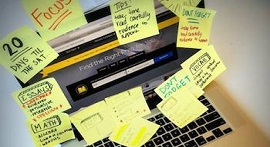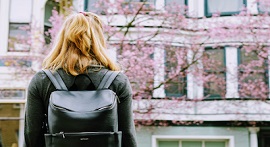Academics
You know you're at The Catholic University of America when Aristotle, Marx, and Kant are all part of the dinner conversation, say students, noting that their school is "a beacon of where faith and reasoning intersect," especially "for anyone looking to strengthen their Catholic faith." Home to around 5,000 graduate and undergraduate students, "it is a big enough school to accommodate for students of many interests, while still maintaining a strong community." CUA puts a "focus on philosophy," not just requiring it as part of the liberal arts program, but incorporating key concepts into other courses, which students enjoy: "This allows for deep and free thinking, which is exactly what college is for."
Students also highlight advantages of the school's Washington, DC, location with a history class "where the professor takes students off campus to sites around the city," an art class that takes place at the city's National Gallery of Art, or even a chemistry discussion section that used the American Museum of Natural History to host "a scavenger hunt involving chemical formulas and other empirical observations." Activities like these foster "fantastic discussions" and help "connect us with the material in such a profound way." For the career-minded, it's not unusual to hear of "internships with the FBI" or "field trips to CIA Headquarters." And professors are also lauded as being "passionate about what they teach, and they draw me into the topics by encouraging me to share my opinions and going deeper with what has already been said in class."
Student Body
Given its very strong identity, the Catholic University of America naturally "attracts Catholic students," but is also "welcoming to those of other faith traditions." One senior explains that meeting people from around the world has "expanded my understanding of many different backgrounds and cultures." One student recounts that "it was very easy to make friends, and I continue to have fruitful conversations with classmates, friends, and fellow students across the university." That said, the biggest differences at the school seem to be between those "with vastly differing political views," leading to a mix of "very different social groups, some much more conservative/religious and some ... who party frequently." Ultimately, the school's greatest strength-a "sense of community and care that the university fosters for the students"-unites these "very ambitious" enrollees, making it "easy to get involved in student organizations, events, jobs, [and] internships." Overall, the student body is united by its desire to support others: "Whether through service or leadership, my peers are largely involved in helping others."
Campus Life
You cannot only view yourself as an individual at Catholic because everything about this campus has something to do with community, explains one sophomore. Others agree, noting that most students are "heavily involved in campus life," especially when it comes to the "student-led campus ministry" and the various service projects that showcase how "Catholic is built on student leadership." The on-campus basilica is a highlight-"that place where I go to when I need to reflect and meditate; looking at the art inspires me and uplifts my mood"-but there are plenty of other "picturesque locations" popular for "simply hanging out." As for more direct ways to engage with peers, a member of the women's soccer team suggests that: "All of the sports teams are fun and have a family-like feel to them." Spectating is also popular, so much so that "the party scene on campus revolves around the athletics schedule." In essence, whether you're taking fitness classes or watching trivia nights, there are enough activities such that "any and all people with different interests [can] find something they like to do." Finally, students emphasize that being in DC is "quite a perk," especially as "there is a metro stop right next to campus that takes you into the heart of the city."




